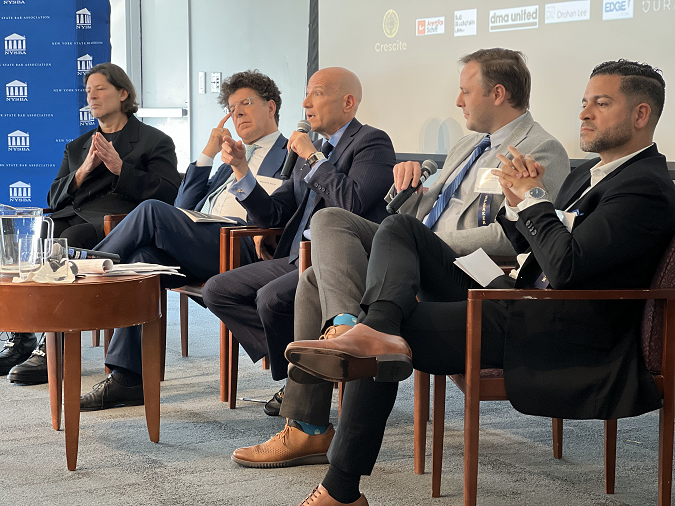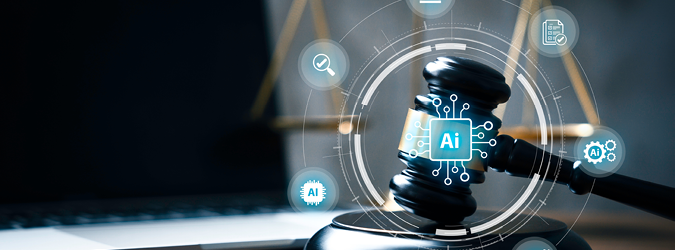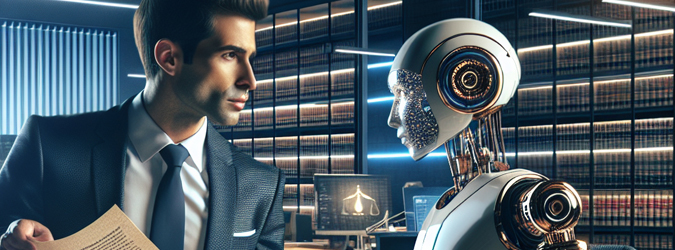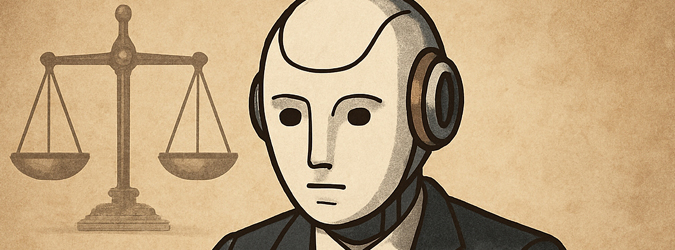Artificial Intelligence Will Transform Legal Profession
10.17.2023

Panelists at a New York State Bar Association conference predicted that lawyers who are in charge of high-level legal strategies for clients have nothing to fear from artificial intelligence, but the jobs of attorneys who conduct the research and draft the legal documents will change dramatically.
“The battle won’t be between humans and AI but between humans with AI and humans without AI,” said Massimo Sterpi, a partner at Gianni & Origoni in Rome and a member of a panel on artificial intelligence. “Work for lawyers will still be there but at a more complex level. The work is going to become more and more sophisticated.”
Sterpi said that lawyers will want to restructure their fees because generative AI will cut down on the number of hours needed to research and prepare legal documents but will require deep strategic thinking. It will make more sense for lawyers to charge for results rather than hours worked, which in itself would be a dramatic change for the legal profession.
Simple tasks such as drafting rental agreements will be among the 300 million jobs worldwide that Goldman Sachs estimates will be eliminated, Sterpi said. Junior lawyers need to get trained as soon as they can on artificial intelligence and gain higher-level legal skills that automation cannot perform, panelists warned.
“Lawyers who do not embrace artificial intelligence will be replaced,” said Eliseo Roques-Arroyo, managing partner of EDGE Legal in San Juan and another member of the panel on artificial intelligence. “Make no mistake about it. Artificial intelligence is here to stay.”
The speakers were all participating in the New York State Bar Association’s “Deep Dive into the Metaverse and Web3: The Second Global Law Symposium & Tech Summit, which took place Oct. 16 to 17 at New York University.
Emily Lewis, an associate at ArentFox Schiff in Washington, D.C., who was on a panel on cybersecurity, warned lawyers that ChatGPT, an OpenAI program, should be off limits.
“It’s important to remember that the second you input something into ChatGPT, your attorney-client privilege is broken,” she said.
Instead, firms should create their own AI software to preserve attorney-client privilege, she said. Creating such software is not easy; it requires hiring expert support staff, training lawyers and making clients aware of the role AI is playing. And after all that work is done, lawyers need to understand the limitations.
“You need to be careful to use AI as a tool. It’s not a substitute,” she said. “But don’t ask it to write a brief for you.”
A case in point is Mata v. Avianca, which prompted New York City lawyer Steven A. Schwartz of the firm Levidow, Levidow & Oberman to use ChatGPT to write a brief. The problem is that ChatGPT made up the cases. Schwartz told U.S. District Court Judge P. Kevin Castel of the Southern District of New York that he didn’t realize that ChatGPT could invent case law.
Despite such growing pains, Marc Beckman, chief executive officer of DMA United and the moderator of the panel on AI, said lawyers need to embrace AI and other newer technologies. He believes that AI, in particular, will have a positive impact on those in the bottom 30% of U.S. socioeconomic brackets. People who can’t afford legal representation will be better off once they can use AI to get basic legal help, he said.
Christopher Lyon, a partner at Goldberg Segalla in New York City and a member of the AI panel, doesn’t think the transformation will come as quickly as Beckman predicts. Only 30% of attorneys are early adapters of technology, he said. So change will come but lawyers still have time to adapt. “There’s going to be a hundred different ways to integrate AI into the practice,” he said.
One participant at the conference asked why every lawyer has to become familiar with AI rather than rely on specialists within the firm who are the experts.
Roques-Arroyo, the managing partner of EDGE Legal from San Juan, said that won’t work.
“Lawyers have an ethical obligation to be competent in these technologies,” he said. “You have a duty to supervise technology.”
And Roques-Arroyo went even further, “I think I have a duty to disclose to a client if I’m using AI technology. Not doing so will expose you to malpractice.”






